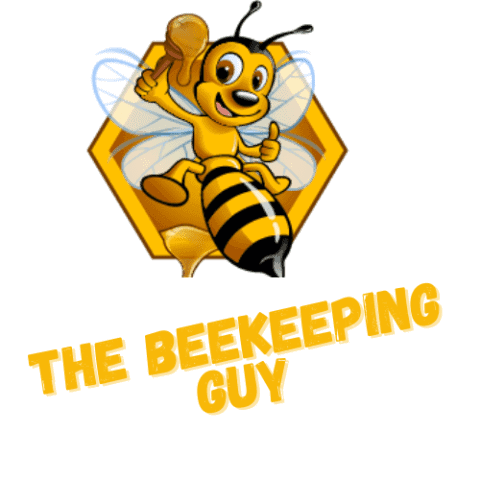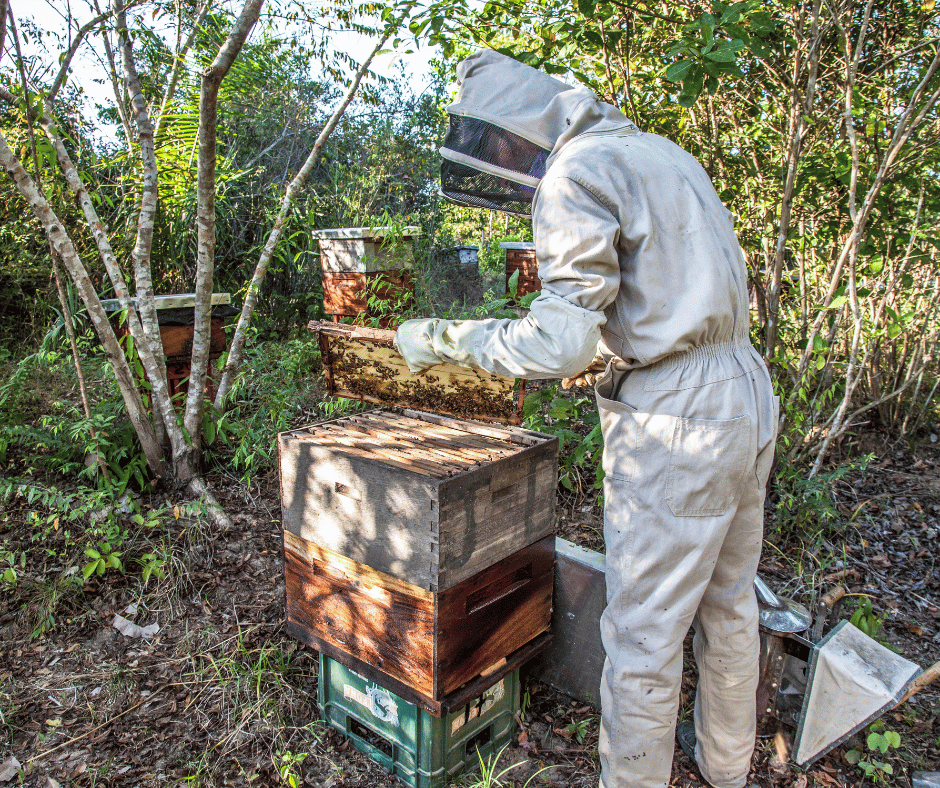
Are you interested in starting a beekeeping business? This article will provide an overview of the basics and essential steps for setting up your beekeeping operation. We’ll discuss the financial requirements, the equipment needed to get started, and potential markets for selling honey products. With this information in hand, you can begin to explore the possibilities of becoming a successful beekeeper!
Here are some tips for getting started in beekeeping:
1. Research Local Regulations – Before launching your business, it is important to understand any local regulations or laws governing beekeeping in your area. Some states may require permits or licenses before you can keep bees on your property; others may have restrictions on where hives should be placed or how many colonies you are allowed to maintain at one time. Make sure you research all relevant laws before beginning so that you don’t run into any legal issues down the line.
2. Invest in Quality Equipment – Beekeeping requires specialized equipment such as protective clothing (e.g., gloves and veils), hive tools (e..g., smokers), frames for harvesting honeycomb, extractors for removing honey from comb cells without damaging them, etc.). Investing in quality gear will ensure that not only do you stay safe when handling bees but also maximize efficiency when managing hives and harvesting their products like wax and honeycombs as well as extracting raw liquid gold – pure unprocessed organic honey!
3 Find Reliable Suppliers – You’ll need reliable suppliers of both beeswax foundation sheets used for constructing combs inside hive boxes as well as queen bees which must be replaced every few years since they eventually die off due to natural causes such as age-related decline or disease infestation within their colony(s). It’s wise therefore to establish relationships with reputable companies offering these services ahead of time so there won’t be any delays once operations begin rolling out full steam!
4 Establish Your Brand & Market Your Business – Once everything is set up properly with regards to equipment purchases/leases plus supplier arrangements made accordingly then it’s time to focus attention towards marketing efforts aimed at promoting brand awareness amongst potential customers located both locally nearby regions too if desired by way of advertising campaigns through social media channels like Facebook Twitter Instagram etcetera alongside traditional methods such newspaper radio television print publications etcetera all designed specifically target audience being targeted thus generating interest levels necessary sustain success over long term period required to reap maximum rewards possible from venture undertaken initially!
5 Monitor Your Hives Regularly – Finally don’t forget about regular monitoring activities which must take place in order to ensure the health status of each individual colony remains optimal condition throughout year-round seasonality fluctuations experienced climate changes affecting the environment around them directly indirectly either case this type activity essential part overall maintenance program implemented preventative measures taken against diseases pests other threats could potentially harm productivity output obtained end day work done correctly first instance result in better returns investment made start off with too boot!.
Table of Contents
Uncovering the Basics of Starting a Beekeeping Business

Starting a beekeeping business can be an exciting and rewarding venture. Not only does it provide you with the opportunity to produce honey and other products, but it also helps support local ecosystems by providing pollination services. To get started, there are some basics that need to be considered before launching your business.
The first step is to research the laws in your area regarding beekeeping businesses. Different states have different regulations when it comes to keeping bees, so make sure you understand what is required of you before starting up your own hive or apiary. Additionally, consider whether or not you will need any special permits or licenses for operating a beekeeping business in your area as well as any zoning restrictions that may apply.
Once all legal requirements are met, then it’s time to start thinking about how many hives and colonies of bees you want for your operation; this will depend on how much honey production (or other products) you plan on producing each year as well as what kind of space is available for housing them safely and securely away from people’s homes/yards/etc.
It’s important to note that while having more hives means more potential income from selling honey (and related items), there are also additional costs associated with maintaining larger numbers of colonies such as feeders, protective clothing & equipment, etc., so keep this in mind when deciding how many hives would best suit the size & scope of your operation.
Next up is finding good quality queens – these should come from reputable breeders who specialize in raising healthy queens specifically suited for their climate conditions – if possible try visiting several breeders before making a purchase decision so that they can help advise which type would work best based on where they live & their particular needs.
Finally, once everything has been purchased, set-up begins! This includes building frames within each hive box, installing bottom boards & lids onto boxes, adding foundation wax sheets into frames plus feeding sugar water solution during warm weather months until nectar flow starts naturally occurring outside. With patience & dedication, anyone can become successful at running their own small-scale beekeeping enterprise!
Essential Steps for Setting Up Your Beekeeping Operation

Starting a beekeeping business can be an incredibly rewarding experience, but it does require some planning. To ensure your success, there are essential steps you should take before beginning your operation.
Next, decide which type of hive system will work best for your needs – Langstroth hives are the most common option for commercial operations as they offer good honey production with minimal maintenance requirements while top-bar hives provide more natural conditions for bees but require more frequent inspections due to their open design.
Additionally, consider investing in protective gear such as gloves and veils if necessary; these items will help keep both yourself and the bees safe during handling procedures.
Once all of this is taken care of, it’s time to purchase supplies like frames and foundation wax along with any other equipment needed such as smokers or uncapping knives; these items can usually be found at local bee supply stores or online retailers specializing in apiculture products (beekeeping).
Finally, find a reliable source for purchasing healthy queen bees – this step is especially important since queens play a vital role in establishing strong colonies capable of producing high-quality honey yields over time!
Understanding the Financial Requirements of Becoming a Beekeeper

For those looking to start a beekeeping business, understanding the financial requirements is an essential first step. Beekeeping can be an expensive endeavor, and it’s important to have a clear budget in place before beginning.
The cost of starting up will vary depending on the size of your operation and what equipment you choose to purchase.
The most basic setup requires at least two hives with frames that hold honeycomb cells for bees to store their honey in; these can range from $50-$200 each, depending on the quality and materials used.
You’ll also need protective gear such as gloves, veils, or suits which are necessary for working with bees safely; these typically cost between $20-$100 per item.
Additional tools like smokers (used for calming bees) may also be needed; they usually run around $30-50 each.
In addition to supplies and equipment costs, there are other expenses associated with beekeeping that should not be overlooked: hive maintenance fees (which include replacing old frames), feeders/supplements for providing nutrition during winter months when flowers aren’t blooming naturally, pest control products if mites become an issue in your area etc.
All of this adds up quickly so it’s important to factor all potential costs into your budgeting plan before getting started!
What Equipment Do You Need to Get Started in Beekeeping?
If you’re looking to get into beekeeping, the first step is to make sure you have all of the necessary equipment. Beekeeping requires a variety of items that can help ensure your success in raising healthy and productive colonies.
From protective gear and hive components to tools for harvesting honey, here are some essential pieces of equipment that every beekeeper should have on hand when starting out.
Protective Gear: To protect yourself from stings, it’s important to invest in quality protective clothing such as a veil or hooded suit with gloves and boots. This will keep you safe while working around bees so they don’t sting your face or hands during inspections or other activities involving them.
Hive Components: You will need several components for each beehive including frames, foundation sheets, inner covers, and outer covers as well as feeders if needed depending on the season. These parts work together to provide shelter for bees while also allowing access points where they can enter/exit their hive safely without being exposed to too many outside elements like wind or rain which could harm them otherwise unprotected hives would not survive long term due to lack of protection against these elements.
Tools: A few basic tools are necessary when managing a beehive such as an uncapping knife used for harvesting honeycomb cells; a smoker which helps calm down agitated bees; a hive tool used to pry apart sections within hives; a brush used gently sweep away any debris from inside hives; frame lifter which allows easy removal/replacement frames within hives without disturbing other parts too much; plus many more specialized items depending on what type operations one is planning to do with their apiary.
Harvesting Equipment: If you plan on collecting honey from your colony then additional supplies may be needed such extractor machine that separates liquid nectar from the wax comb, strainers that filter out impurities before bottling up products ready for sale, containers that store finished products until sold, etc.
With this list of essential beekeeping supplies at hand, newbies can feel confident about getting started in this rewarding hobby!
Exploring Potential Markets for Selling Your Honey Products

As a beekeeper, you have the potential to make money from your honey products. Before you can do that, however, it’s important to explore potential markets for selling your honey products. Doing so will help ensure that you are able to maximize profits and reach the right customers.
Additionally, researching competitors can provide valuable insights into how they are marketing their own offerings and what strategies they use for pricing their goods or services.
Another way of exploring potential markets is through networking with other businesses in related industries such as food retailers or health stores that could be interested in stocking your honey products on their shelves or online storefronts.
It’s also worth considering attending trade shows where buyers come together with suppliers – this provides an ideal opportunity for introducing yourself and showcasing samples of your product range directly to prospective customers who may not otherwise know about it!
Finally, don’t forget about digital marketing channels like social media platforms which offer great opportunities for reaching out directly to consumers around the world – creating content tailored specifically towards them could help raise awareness about what makes yours stand out from others available on the market!
Overall, there are many different ways that beekeepers can explore potential markets when starting a business selling honey-based goods; taking time to conduct thorough research beforehand will pay off significantly when it comes time to launch sales operations successfully!



